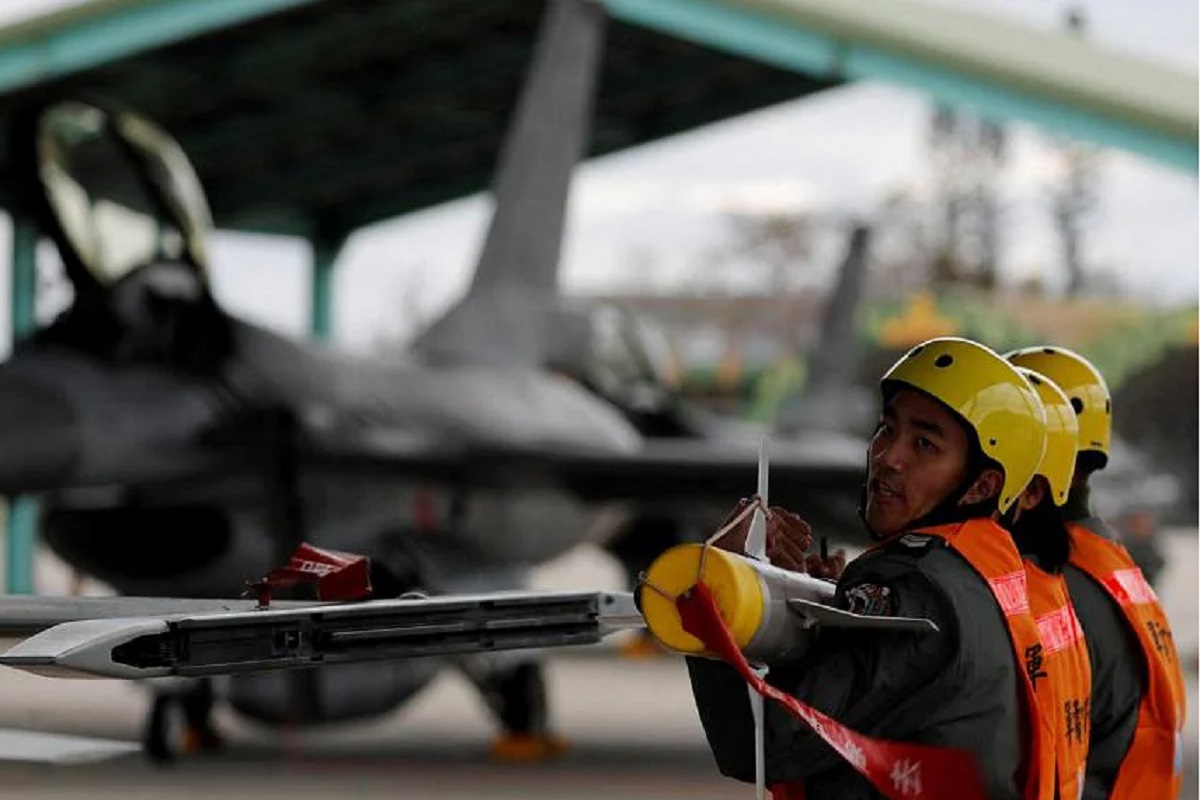Putin plays with f ire in his new doctrine
Of late Vladimir Putin has shifted Russia’s nuclear doctrine to a more directly and openly retaliatory posture in response to any attack by Ukraine or any NATO country using longer-range US missiles.
The Pentagon’s Defence Security Cooperation Agency on Friday announced the package, the largest in almost two years, which includes radar systems and missiles.

The arms package includes 100 Sidewinder air-to-air missiles for US$85.6 million. PHOTO: REUTERS
Beijing on Saturday slammed Washington’s approval of a potential US$1.1 billion (S$1.54 billion) sale of military arms to Taiwan, saying that the move jeopardises China’s ties with the Unites States and vowing to take countermeasures.
The Pentagon’s Defence Security Cooperation Agency on Friday announced the package, the largest in almost two years, which includes radar systems and missiles.
It will have to be approved by Congress, but that is virtually assured given bipartisan support for Taiwan.
Advertisement
Reiterating that Taiwan is an “inalienable part” of China, Beijing called on Washington to “immediately revoke” the arms sale.
“The United States interferes in China’s internal affairs and undermines China’s sovereignty and security interests by selling arms to the Taiwan region,” said Mr Liu Pengyu, spokesman for the Chinese embassy in Washington.
He added that the arms sale will send the “wrong signals to ‘Taiwan independence’ separatist forces”, and severely jeopardise China-US relations and stability across the Taiwan Strait.
It will also include US$355 million for 60 Harpoon Block II anti-ship missiles that would allow Taiwan to fend off or deter “maritime aggressions, coastal blockades, and amphibious assaults”.
Also included are 100 Sidewinder air-to-air missiles for US$85.6 million, widely employed by Western militaries.
The proposed sale comes just weeks after China carried out large-scale military drills around Taiwan, following US Speaker Nancy Pelosi’s visit to the self-ruled island, which ratcheted up tensions across the Taiwan Strait.
She was the most senior US official to visit Taiwan in 25 years. Beijing saw the trip as a severe provocation, as it views Taiwan as a renegade province to be reunified by force, if necessary.
Relations between both powers have reached a historic low point, with the Biden administration saying on Friday that it will continue to keep tariffs on hundreds of billions of dollars worth of Chinese imports while it continues a statutory review of the duties imposed by the previous administration.
A US State Department spokesman said the latest arms package was “essential for Taiwan’s security”.
“These proposed sales are routine cases to support Taiwan’s continuing efforts to modernise its armed forces and to maintain a credible defensive capability,” the spokesman said, urging Beijing to cease its military, diplomatic and economic pressure against the island and engage in meaningful dialogue.
Professor Zhu Feng, dean of the Institute of International Relations at Nanjing University, said the potential arms sale proved that despite the latest Taiwan Strait crisis sparked by Mrs Pelosi’s visit, “no real changes were possible” to the Biden administration’s Taiwan policy.
“Selling Taiwan military arms caters to the needs of the US economy and military industry, this is an important interest to the US that is part of its policy on Taiwan,” he said.
Meanwhile, The Wall Street Journal reported on Friday that the Pentagon has launched a push to speed up arms sales to foreign allies to better compete with China and replenish arsenals of friendly nations that have given military gear to Ukraine.
It has formed a task force, the so-called “tiger team”, of senior officials to examine longstanding inefficiencies and streamline US sales of weaponry to other countries.
The aim is to make American arms including drones, guns, helicopters, tanks and other weaponry available to partners and allies faster.
Advertisement